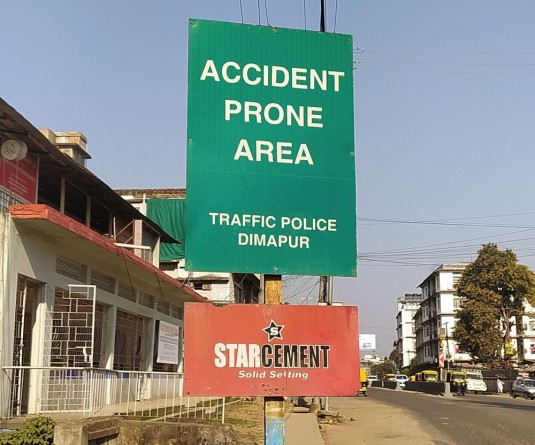
Yapan Walim
Dimapur
As the spectre of COVID19 looms large which shows no indication of waning but rather burgeoning as the days goes by, the impending threat of the disease visiting Nagaland appears all too real. Health experts predicts that pandemic might infect 60% of the global populations if left unchecked. There is thus a well founded deep sense of fear undergirding the Nagas — not least because of our fledgling healthcare infrastructure. In times like this, it is all too natural for humans to look for reasons to make sense of the events and accordingly respond for the same.
However, amidst the hysteria, what we may be losing sight of is the fact is that this provides an ample opportunity to grow our faith and examine where it stands. Us Christians are called to be radically different but our responses to the pandemic appears to be not too different from the rest of the world. There is no denying that we need to take precautionary measures as deliberate irresponsibility might entail putting our Lord to the test. That being said, however, our trust should be solely on the Lord. Indeed, many seems to be basking in a false sense of security in the precautionary measures one undertakes and have their trust entirely misplaced.
To be sure, we must rely on the basis of promises like in Psalm 91. How does this play out in real life? Suppose the person has taken all the precautionary measures, but comes into contact with an infected person unwittingly, it means — and dare I say — believing the disease will literally not touch you because our good Lord has you under His wings. It also means desisting from any irrational fear, as contrary to popular perception, this disease is “discriminatory” in that those who call upon the Lord as his refuge are totally safe, not because we are deserving but because He is faithful.
If in any disaster strikes, one goes into a tailspin, it only shows our faith hasn’t yet been firmly established on the Rock. While it is usual in the initial phase of our journey with the Lord, it is hoped that the time and space gained to sit at home will be wisely appropriated as we read the Bible and find some spiritual insights.
While some are dismissive of anything Biblical and particularly prophetic words, because it seems obsolete in today’s century, what is obsolete is rather their understanding of the Bible. Having said so, considering the fact of how our education system are patterned, most likely many are even unaware of epistemological underpinnings, much less so of Indian epistemological traditions, even as they claim to be scientific minded. On a digressing note, though not unrelated, to illustrate my point, is the fact that there are increasing fan followings of conspiracy theories. They fail to recognize that we ordinary folks have no way of “independently” verifying the so called “evidences” for both sides of the arguments, we simply have to take them at their words and their materials. So we are really back to square one.
However, if anyone is to read the Bible, one quickly learns that we are told not to take anything at face value, except His words and promises, but — drumroll — to test everything as in 1 Thess 5:20-21. Is it any wonder then that biblical traditions has already set the pattern to examine the facts before coming to a conclusion? (Deu 19:15-19, Pro 18:17) This also means for Christians to stop sharing rumours before verifying the facts.
One test of truth is its successful activity and the experiential reality it produces in the lives of the investigating person. So, when one makes a radical claim that the disease will not touch those who calls upon the name of the Lord, it isn’t so much as to claim without the person having felt the experiential reality of past fulfilled promises.
The Bible calls us to test, test, and test. Even what this author says should be scrutinized, not on the basis of personal gut feelings but rather against the parameters set in the Holy Bible.



